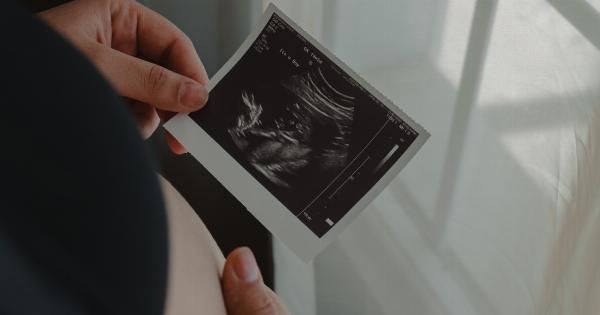Pregnancy is a significant phase in a woman’s life, filled with anticipation and excitement. It is a time when the expectant mother must prioritize her health and make conscious choices that benefit both her and the developing baby.
While many women are aware of the importance of maintaining a healthy lifestyle during pregnancy, it is equally crucial to understand the risks associated with excessive habits. In this article, we will explore the potential dangers of certain habits during pregnancy and provide valuable information to help expectant mothers make informed decisions.
Smoking
Smoking during pregnancy has long been associated with numerous health risks for both the mother and the baby.
When a pregnant woman smokes, harmful chemicals such as nicotine, carbon monoxide, and other toxins are transferred to the baby through the placenta. These substances can hinder the baby’s oxygen and nutrient supply, leading to various complications like low birth weight, premature birth, and even stillbirth.
Additionally, smoking increases the risk of ectopic pregnancies, birth defects, and respiratory problems in the baby.
Excessive Alcohol Consumption
Alcohol consumption during pregnancy can have severe consequences for the developing baby. When a pregnant woman drinks, the alcohol easily passes through the placenta, affecting the baby’s blood alcohol concentration.
This can result in a range of conditions collectively known as Fetal Alcohol Spectrum Disorders (FASDs). FASDs can lead to physical, behavioral, and intellectual disabilities that can last a lifetime. It is recommended to completely avoid alcohol during pregnancy to ensure the baby’s healthy development.
Caffeine Intake
Caffeine is a stimulant commonly found in coffee, tea, soda, and chocolate. While moderate caffeine consumption is generally considered safe during pregnancy, excessive intake can pose risks.
High levels of caffeine can interfere with the baby’s growth and increase the likelihood of preterm birth or low birth weight. Moreover, caffeine is a diuretic, which means it can contribute to dehydration, potentially affecting the amniotic fluid levels and overall fetal well-being. It is advisable to limit caffeine intake to 200 milligrams per day during pregnancy.
Poor Diet
A well-balanced and nutritious diet is essential for both the pregnant mother and the developing baby. A poor diet lacking in essential nutrients can result in various complications such as gestational diabetes, preeclampsia, and anemia.
It is crucial to consume a variety of fruits, vegetables, whole grains, lean proteins, and dairy products to ensure an adequate nutrient intake. Additionally, certain foods like raw seafood, soft cheeses, and undercooked meats should be avoided to prevent the risk of foodborne illnesses.
Overexertion and Strenuous Exercise
Regular exercise is generally recommended during pregnancy as it promotes overall health and prepares the body for labor. However, overexertion and engaging in strenuous exercise routines can be harmful.
Intense exercise can increase the body’s temperature, leading to potential risks for the baby, such as neural tube defects and premature birth. It is crucial to consult with a healthcare professional before starting any new exercise regimen during pregnancy. A moderate exercise routine, tailored to the individual’s needs, is generally considered safe.
Drug Abuse
Using illicit drugs during pregnancy can have devastating effects on both the mother and the baby. Substance abuse can increase the risk of miscarriage, premature birth, placental abruption, and birth defects.
Additionally, drug addiction may lead to long-term developmental and behavioral issues in the child. It is vital for pregnant women struggling with drug addiction to seek professional help and support to ensure the well-being of themselves and their babies.
Exposure to Environmental Toxins
Pregnant women should be cautious about exposure to environmental toxins and pollutants, as these substances can cross the placental barrier and harm the developing baby.
Some common environmental toxins include pesticides, lead, mercury, and certain cleaning agents. Exposure to these substances has been linked to various developmental problems, birth defects, and even pregnancy loss. It is important to be aware of potential sources of toxin exposure and take necessary precautions to reduce the risk.
Uncontrolled Stress
Pregnancy can be a time of heightened emotions and increased stress. While limited stress is a natural part of life, excessive or chronic stress can have detrimental effects on both the mother and the baby.
High levels of stress hormones can disrupt the baby’s growth and development, increase the risk of preterm labor, and impact maternal mental health. It is crucial to find healthy ways to manage stress during pregnancy, such as practicing relaxation techniques, seeking support, and maintaining a balanced lifestyle.
Excessive Weight Gain
While weight gain is a normal part of pregnancy, excessive weight gain can lead to a range of health issues for both the mother and the baby.
When a pregnant woman gains an excessive amount of weight, there is an increased risk of gestational diabetes, high blood pressure, and complications during labor. Additionally, babies born to mothers who are overweight or obese are more likely to experience problems such as macrosomia (large birth weight), birth injuries, and the risk of childhood obesity.
It is essential to follow appropriate guidelines for weight gain during pregnancy and maintain a healthy lifestyle.
Use of Certain Medications
During pregnancy, it is crucial to be vigilant about the medications one takes. Some medications, including certain over-the-counter drugs and prescription medications, can pose risks to the developing baby.
It is important to consult with a healthcare provider before taking any medication, as they can guide you on the safe use of specific drugs during pregnancy. Avoiding self-medication and always seeking professional advice is key to ensuring the safety of both the mother and the baby.
Inadequate Prenatal Care
Regular prenatal care is a fundamental aspect of maintaining a healthy pregnancy. Skipping or delaying necessary prenatal appointments can prevent timely identification and management of potential health concerns.
Adequate prenatal care allows healthcare providers to monitor both the mother and the baby’s well-being, provide essential screenings, and offer appropriate guidance. Neglecting prenatal care can lead to missed opportunities for preventative measures and early intervention, increasing the risk of complications for both the mother and the baby.




























